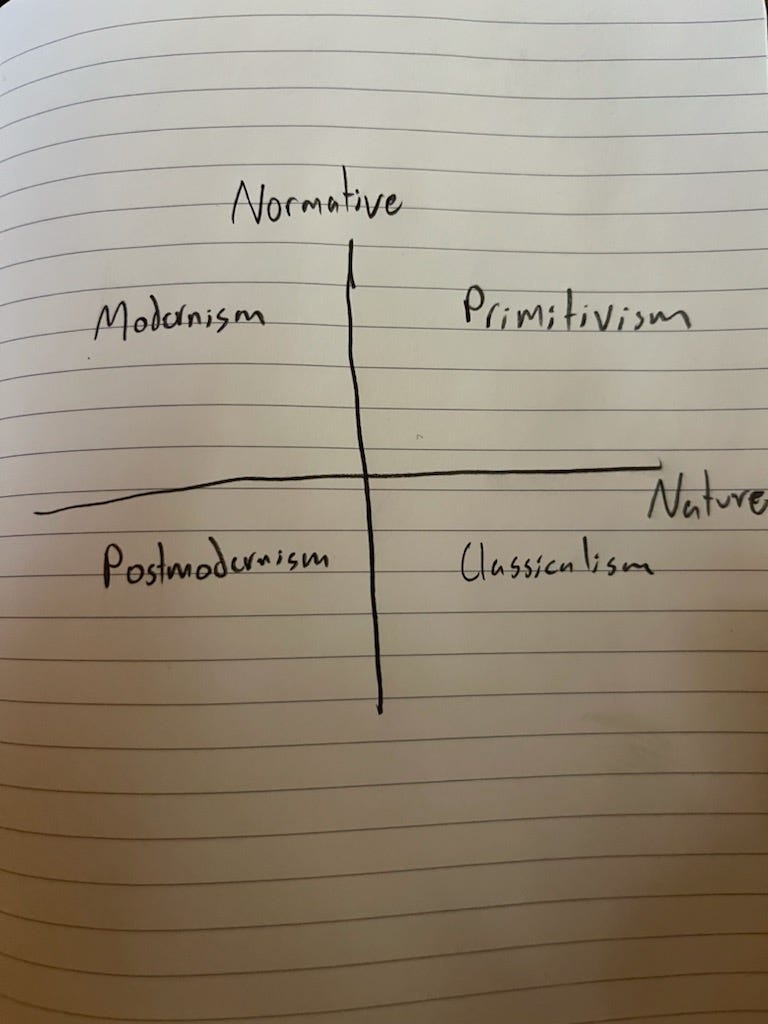For my last missive of 2021 I’d like to turn to a fundamental question:
Do we have a “human” nature and is our nature normative? That is, ought we aim to follow what is natural to us? What would it mean to be out of sync with our nature? (That seems like a contradiction.)
There are, for the sake of clarity, four possible answers:
Yes, we have a nature, and it is normative. (Avoid what is unnatural).
Yes, we have a nature, but it is not normative. (Avoid what is wrong in accordance with law and convention).
No, we don’t have a nature, and that fact is itself normative. (Avoid what is given and pursue that which we ourselves make and create; artifice itself is good).
No, we don’t have a nature, and that fact is not normative one way or the other. (Morality is a mix and match between appeals to naturalism and appeals to artifice).
If the above sounds abstract, here’s a 2x2 to help:
In Primitivism there is no “ought” that stands outside of what is. Morality is instinctual. No drives are good or bad. The more basic the better. It is good for wolves to eat lambs and bad for them to lie down with them. What Nietzsche describes as the world of “blonde beasts” more or less corresponds to this view.
Classicalism, whether in the form of Biblical morality or Greek morality or some other ancient system acknowledges that humans have basic drives, but seeks to temper them and guide them by some principle, some appeal to a natural hierarchy of ends. Human similarity to the animal kingdom is to be overcome by a path of moderation, if not totally transcended.
Modernism posits not only that we have no nature (“existence precedes essence”; “X is a construct,” etc.) but that it’s bad to accept the terms and conditions we’ve been handed and to treat them as natural and sacrosanct. Our obligation is to self-transcend by building space ships that go to Mars, microscopes that find cell tumors, and VR goggles that let us superimpose our world onto the world “out there.” In modernism, we celebrate the journey from what was thought impossible to a new frontier. Whatever the status quo is, it is presumed to be wrong.
In Postmodernism, we have no nature, but we need not be zealous about it. Tradition may not have the authority it once did, appeals to nature are to be suspected, but we need not make a virtue out of artifice and innovation, either. In postmodernism, one can appear primitive or classical or modernist, but without the naivety of believing these appearances to have ultimate standing. One can eat an exclusively organic non GMO diet while blogging about it on on Pinterest as a “trad influencer” (and feel no sense of hypocrisy in it).
What is my purpose in writing about naturalism and normativity besides intellectual interest?
Keep reading with a 7-day free trial
Subscribe to What Is Called Thinking? to keep reading this post and get 7 days of free access to the full post archives.




